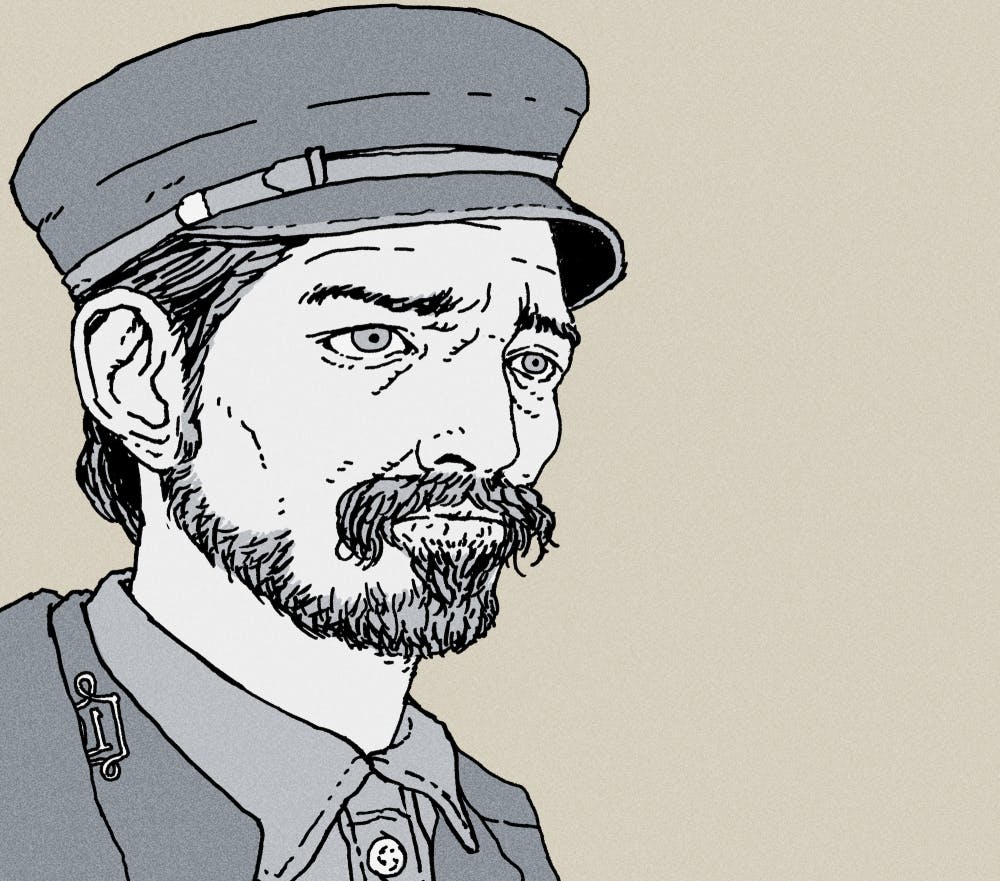The Lighthouse is a hard film to watch and an even harder one to explain. Its premise is that Robert Pattinson and Willem Dafoe are stranded on an island together for four weeks, and clearly they're beginning to go insane. There's a female siren, who shouts in a terrifying half–song, half–scream, a seagull who attempts to make Robert Pattinson’s existence a living hell, and an incessant humming noise from the lighthouse that seems to be driving each character mad. Director Robert Eggers, who previously gained critical acclaim for his breakout film The Witch in 2016, has crafted this film in black–and–white and an oppressive 1.19 by 1 aspect ratio. There's also the glaring, holy light of the lighthouse, omniscient and pseudo–religious. Suffice it to say, The Lighthouse is a very strange film, but certainly an interesting one.
Unsurprisingly, the performances in this film are impressive. Willem Dafoe is typecast in the part of the half–mad lightkeeper, Thomas Wicke, with his wild beard and slightly crazy eyes. Robert Pattinson, on the other hand, is trying his damnedest to solidify his status as an unhinged leading man, particularly after his peculiar performance in The King—he's clearly no longer the dreamboat romantic lead that he was in Twilight.
Here, he portrays the initially stuck–up Ephraim Winslow, a newcomer to the world of lightkeeping, who has come to assist Wicke by doing menial labor around the lighthouse. Together, the two have an electric, gritty chemistry—every scene feels like they’re five seconds from socking each other in the face. Meanwhile, their relationship carries a strange homoerotic undercurrent. Since The Lighthouse is effectively a two–man show, their ability to keep every scene suspenseful is one of the most important forces in the film, and it's handled beautifully by both performers.
The world that they live in is defined, mostly, by noise. The hum of the lighthouse, the tick of the clock, and the patter of rain on the windowsills make the world of The Lighthouse seem startlingly real. Even the first ten or so minutes of the movie focus solely on this characterization of the island and the buildings, avoiding dialogue other than the muttered grunts of Winslow knocking his head on the short ceiling of the bedroom.
The sets, too, are done with care: the winding stairwell of the titular lighthouse curves up endlessly, and the wooden floors of the house cry out with every move. The care put into the film, a Kubrickian obsession with the smallest of details, puts Eggers on par with the great directors of his generation.
What makes these two elements so important is that they're not stationary aspects of the scenery; they change and alter as their characters continue to lose it. The house slowly gets destroyed, first with its furniture becoming disheveled, and holes appearing in the ceiling. Uncleanliness and chaos permeate the space. Winslow punches the clock for ticking endlessly in the background; when a scene goes silent late in the movie, the emptiness and stillness feel unnatural. It seems too obvious to say that these are clear acts of symbolism as our heroes lose their minds, but Eggers pulls it off without being too heavy–handed, letting the world unfold as if it’s normal.
What's most important about The Lighthouse is rhythm. The movie finds its pace at the beginning, going through the day at a casual, easy pace. Winslow wakes up, completes his tasks through the afternoon, then has dinner with Wicke at nightfall before finally scooping coal before sleep. Slowly, as the world becomes more confusing, the day looks different: Winslow watches his compatriot stand within the bright light atop the tower and seeks to investigate. Winslow masturbates to the siren doll he found within his mattress. Winslow confronts a seagull that keeps getting in his way. The routine begins to break, the days fade together, and the sun never seems to shine under the stormy rain clouds. Wicke asks Winslow how long they’ve been on this island, and Winslow can’t answer. They cease having dinner together, and instead they drink—an act which Winslow initially abstained from. Disorder overwhelms as routine decays.
It's hard to explain more plot of The Lighthouse without spoiling it, but its overall message is that you shouldn’t leave two men together on a piece of rock with only alcohol and seagulls to keep them company. Wicke starts off the film half–crazy as it is, and the stern Winslow caves soon after. They drink themselves into a stupor, dance around the creaky house, and pretend to fistfight around on the floor. Winslow sees things, or perhaps he doesn’t, and Wicke commands him with confusing, ridiculous orders throughout. Unlike other hallucinatory dramas, The Lighthouse refuses to tell you what’s real and what isn’t by the end, which leads to a thought–provoking finale and a very confused audience.
Most of all, The Lighthouse is a movie that people will write academic essays about. The symbolism of thirst and hunger remains omnipresent. Even the characters' identities remain mysteries until the end—which draws comparison to Greek mythological figures Proteus and Prometheus. The Lighthouse doesn't try too hard to be an artsy film wracked with unnecessary symbolism, but it presents themes with beautiful subtlety. Most important about The Lighthouse is that reading synopses and reviews makes it look perplexing: to get it, you have to see it.

